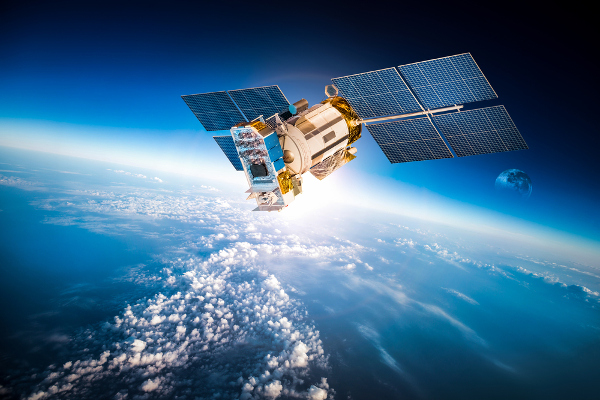The Indian Space Research Organisation (ISRO) and its older commercial arm Antrix Corporation Ltd. are poised to commercialise India’s regional navigation satellite system, NavIC, with Antrix recently floating two separate tenders to identify industries that can develop dedicated NavIC-based hardware and systems.
NavIC (Navigation in Indian Constellation) is the Indian system of eight satellites that is aimed at telling business and individual users where they are, or how their products and services are moving. The indigenous positioning or location based service (LBS) works just like the established and popular U.S. Global Positioning System or GPS, but within a 1,500-km radius over the sub-continent.
Antrix’s Chairman and Managing Director S. Rakesh said the company was currently identifying suitable device manufacturers on the one side and comprehensive integrators of NavIC-based systems (SIs) on the other side. Eligible manufacturers from the two sets would be empanelled so that they could bid for government projects that require monitoring of moving assets and fleet.
Early users
The early set of commercial NavIC users, he said, would be potentially transporters of resources such as mined ore, coal and sand in various States. Several transporters currently use GPS-based systems.
“Mining and transportation sectors need vehicle tracking applications that are tied to revenue sharing systems of the government,” said Mr. Rakesh. “Many are using a GPS-based system to check pilferage [and fudging]. They can now add NavIC to this and to new activities,” he added.
The Ministry of Road Transport and Highways mandated last year that all national-permit vehicles must have such tracking devices. As a pilot, many fishing boats have been fitted with these devices that have a unique texting facility.
Besides the Antrix tenders, two other recent developments have paved the way for taking NavIC closer to end users.
Positive developments
In mid-October, ISRO announced that Qualcomm Technologies, Inc., a leading producer of semiconductor chips, had developed and tested NavIC-friendly chipsets across its user bases and that it would add NavIC to them.
Apart from GPS, its chips can work with the global navigation satellite systems of Europe (Galileo), Russia (GLONASS) and China (Beidou.)
ISRO said this support would be available for original equipment manufacturers (OEMs) from November. It expects the indigenous system to ‘enhance’ the use of NavIC on mobile, automotive and Internet of Things (IoT) devices.
The third and important positive for NavIC was the certification of the Indian system by the 3GPP (The 3rd Generation Partnership Project), a global body for coordinating mobile telephony standards.
The specifications will be available in March 2020 and the Telecommunications Standards Development Society, India (TSDSI) has said it would adopt them as a national standard. “The implication is that 4G and 5G devices with NavIC capability can use assisted-NavIC solution in place of, or in addition to, other constellations,” TSDSI said.
According to Broadband India Forum, the potential market for NavIC-based products and integrated circuits can be very large and Indian companies and start-ups can now design them.
Some potential applications of the regional navigation system include: terrestrial, aerial and marine navigation; disaster management; vehicle tracking and fleet management; integration with mobile phones; precise timing (as for ATMs and power grids); mapping and geodetic data capture; as terrestrial navigation aid for hikers and travellers; and for visual and voice navigation for drivers.
Source: TH
Image Courtesy: HomeLandPrepNews
You may also like
-
Trade Connect E-platform For Exports Is Single Window, Fast, Accessible And Transformational: Shri Piyush Goyal
-
Dot Simplifies Approval Processes For Telecom Licenses And Wireless Equipment
-
Coal Production and Supply Trends on Positive Trajectory
-
Union Minister To Release Booklets On Promotion Of Indigenous Species & Conservation Of States Fishes
-
2nd India-Japan Finance Dialogue held in Tokyo on 6th September, 2024
